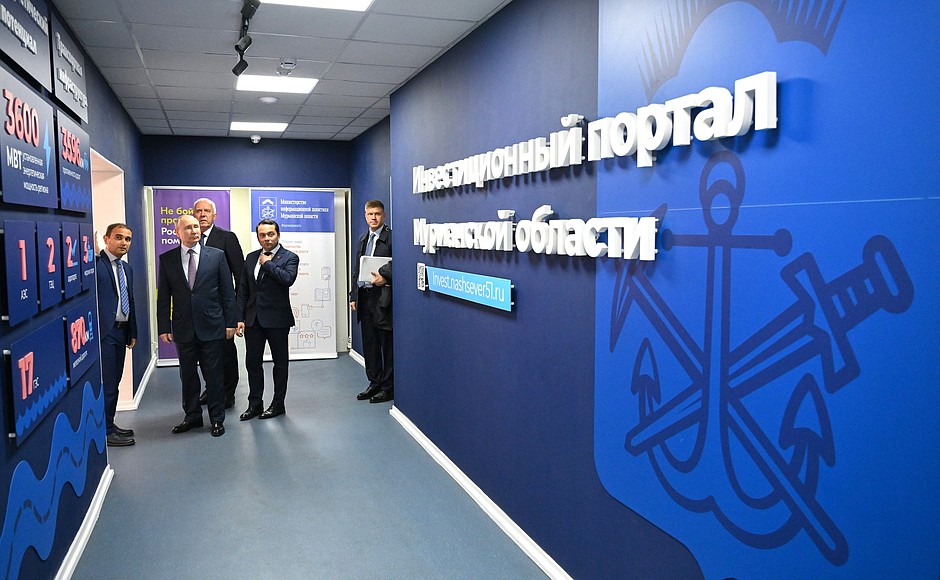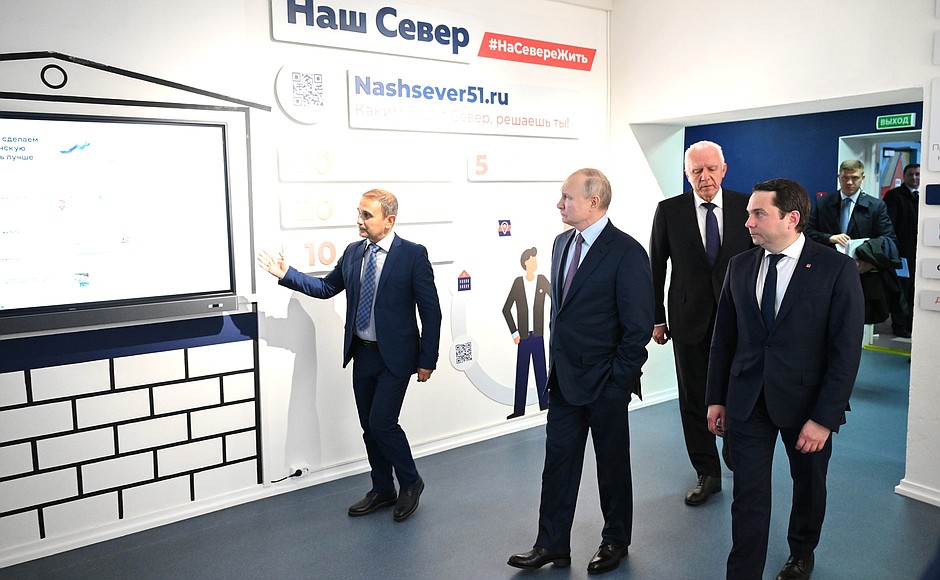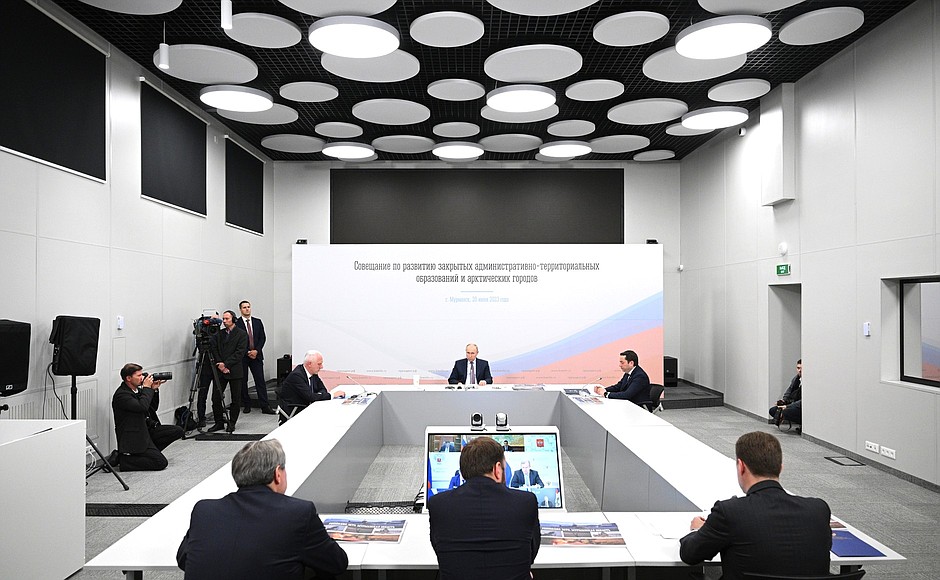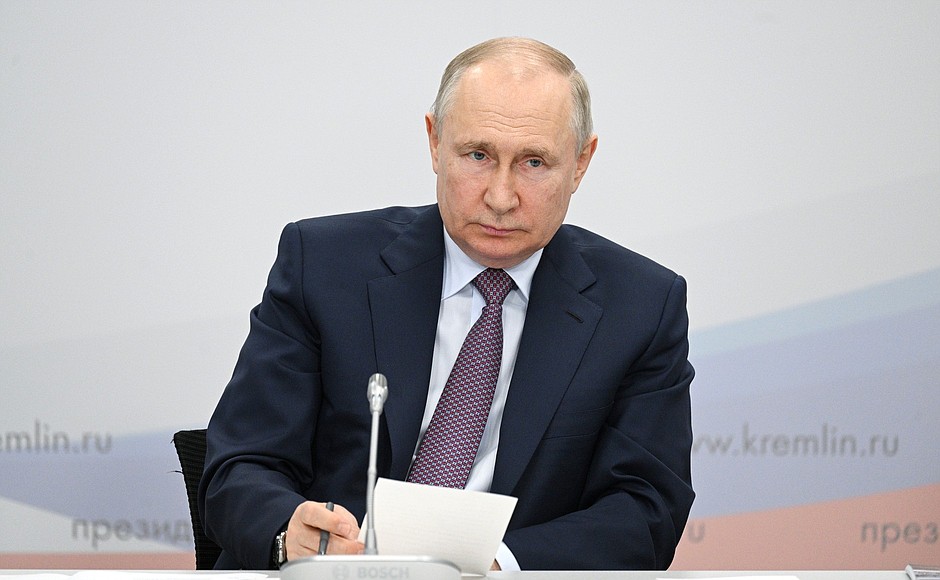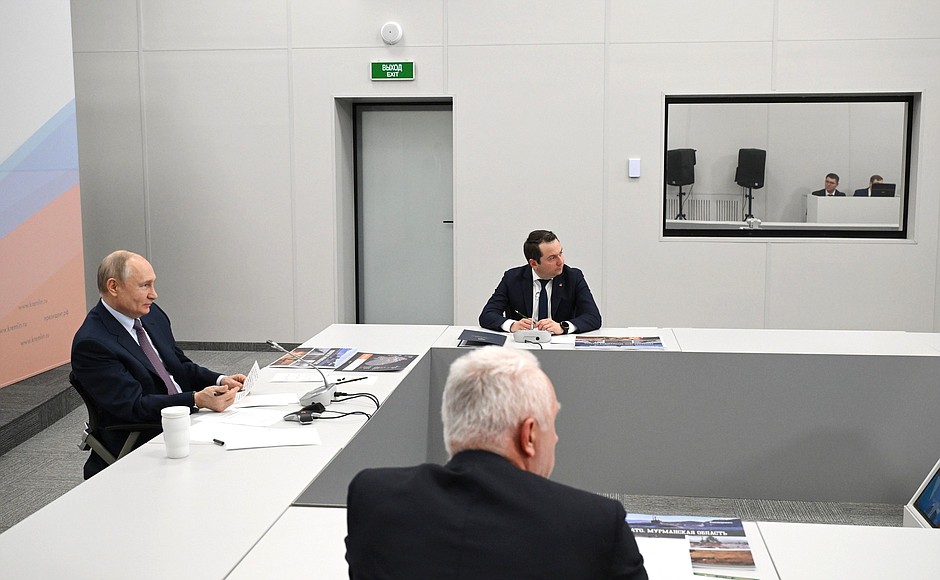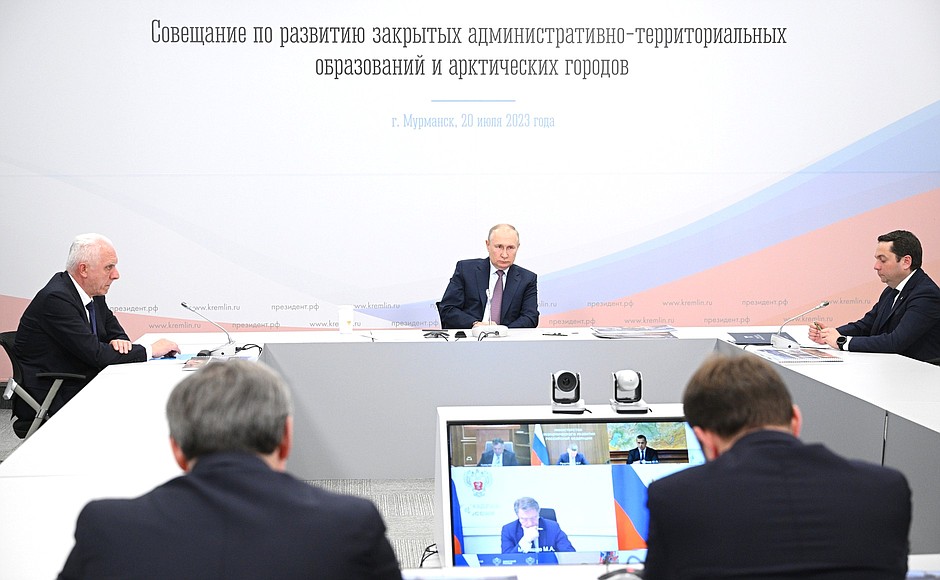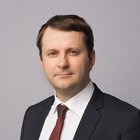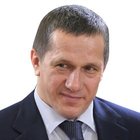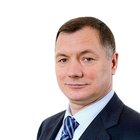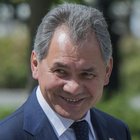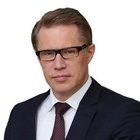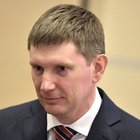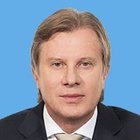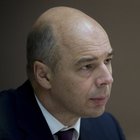The meeting was attended by Presidential Aide Maxim Oreshkin, Minister for the Development of the Russian Far East and Arctic Alexei Chekunkov, Presidential Plenipotentiary Envoy to the Northwestern Federal District Alexander Gutsan, and Murmansk Region Governor Andrei Chibis. Deputy Prime Minister and Presidential Plenipotentiary Envoy to the Far Eastern Federal District Yury Trutnev, Deputy Prime Minister Marat Khusnullin, Defence Minister Sergei Shoigu, Minister of Health Mikhail Murashko, Minister of Economic Development Maxim Reshetnikov, Minister of Transport Vitaly Savelyev, Minister of Finance Anton Siluanov, Minister of Construction, Housing and Utilities Irek Faizullin and Director General of DOM.RF Vitaly Mutko participated via videoconference.
Reports were delivered by Murmansk Region Governor Andrei Chibis and Minister for the Development of the Russian Far East and Arctic Alexei Chekunkov.
Prior to the meeting, the President toured the Murmansk Region's Regional Governance Centre.
* * *
President of Russia Vladimir Putin: Good evening, colleagues,
I saw some of you earlier at the first meeting.
With regard to the issue that we are about to discuss, we have just visited a major enterprise that has been put into operation and will be used to develop the Arctic in the broadest sense. Indeed, the issue is about specific Arctic projects to liquefy natural gas, but such projects are critical for developing the Arctic in general and expanding the country's economy, as I mentioned earlier.
The Arctic is strategically important for the country, and we discussed this issue many times as it applies to various situations. That includes defence matters and the resource base, to name just a few.
Meanwhile, there are major issues that need our special attention such as the 70-percent wear and tear of the utilities and the housing stock, even in major Arctic cities. This problem is even worse in small remote localities and closed administrative territorial units.
I would like to say in this context that we have scored some achievements and have moved forward in addressing a number of issues, thanks to some of the decisions we took over the past three years. For example, residential blocks are being overhauled, gardens and other public spaces are being improved and new social facilities are being built. Regrettably, we could not visit Severomorsk because of bad weather. Even a helicopter flight was out of the question. However, I know that a high school for 1,200 children has been built there, a sports centre with a swimming pool has been built in Zaozersk, and a building that houses a library and a children’s art school has been overhauled in the military community Sputnik.
Despite this, our efforts in the sphere of social development have clearly not been sufficient. We must increase the scale of this work and do it systemically. It is clear that the regions’ budgets are limited. Moreover, the development tasks of some communities are directly connected with national security and are therefore important for the country as a whole. This is why the federal centre must shoulder a large part of responsibility.
I would like to remind you that during a meeting on the Arctic held last year we decided to draft an action plan for the development of housing, energy and social infrastructure in closed administrative territorial units and towns in Russia’s Arctic where our military units are deployed. However, this is taking too long. Colleagues, I would like to talk with you about it today, about the reasons why we are lagging behind the schedule.
I would also like to tell you that the development of cities in the harsh northern conditions is connected with defence matters, as I have already said. I will not go into detail here, but we have many defence and security interests in these areas. Therefore, local residents must live in good conditions, which is something we must focus our attention on.
In this connection, I would like to repeat that these issues are of fundamental significance. I will not provide the details, which we have discussed with the governor just now and with the minister in the past. I only want to say that we must address this issue in the most serious manner.
In conclusion, I would like to say the following.
<…>
Vladimir Putin: Let us create some interim outcomes.
The first thing I would like to bring your attention to is that we need to finally agree on the action plan to develop the housing, energy, and social infrastructure of these closed administrative territorial units, as well as the Arctic localities in general – which is a broader objective – which accommodate our military units.
Also, funding the activities outlined in this action plan should come from different sources, and these efforts must be coordinated. As I said earlier, all of that must be completed by September 1. Let me remind you that this includes upgrading primary healthcare facilities, repairing schools, retrofitting the housing and utilities system, housing construction, landscaping, and so on.
Second, the plan should be based on general town plans for each locality, if that is possible, or, as the minister suggested, on a plan for several localities that are part of one agglomeration for purposes of effective area development. I agree with that approach.
There is one more aspect which we did not cover during this meeting, but which I discussed with the governor on our way here. We need to think in advance about providing employment to military families. There are several options here, and there is nothing new or complicated here. All we need to do is to think about it in advance and make sure retraining programmes or programmes for learning new skill sets are readily available.
Fourth, the core localities in the Arctic. I agree with you and I support these proposals. I would like the Government, in conjunction with the regions, to draw up a list of such localities. For obvious reasons, population size is not the only thing that matters here. We must bear in mind that even small localities and small villages can be of strategic importance to the country, and we must be mindful of this.
We should also draft general urban development plans for core Arctic localities for the period to 2035, similar to the plans that have been developed for our Far Eastern urban areas.
Please do not delay this work, so that we could use completed documents to approve, by October 1, 2024, comprehensive plans for the long-term development of Arctic urban areas to 2035 with specific sources of funding. At the same time, it is important to start the practical work not later than 2025.
Next, the minister mentioned the Arctic mortgage programme today as well. I think it could help a lot of Arctic residents. We are aware of the outcomes of this low-cost mortgage at 2 percent APR in the Far Eastern Federal District. It was a success with 73,000 families improving their housing conditions. I agree that it should be expanded to include young families in the Arctic. That is, for them the low-cost mortgage rate will not exceed 2 percent, either. I propose extending this programme through 2030.
With regard to the Severomorsk facilities, we have just agreed that the Defence Ministry will build a new sports complex, and the stadium will be brought up to standard with the allocated funds by way of redistributing certain resources set aside for this zone. The Defence Ministry will bring the House of Officers up to code as well. The Minister of Healthcare said that the central hospital also will be brought up to code during a follow-up revision of the budget. I look forward to all of that getting implemented.
Everything we have agreed upon today must be included in relevant instructions.
Thank you very much everyone. I look forward to everything we have agreed upon and everything that will be put on paper being implemented. Thank you, all the best.
